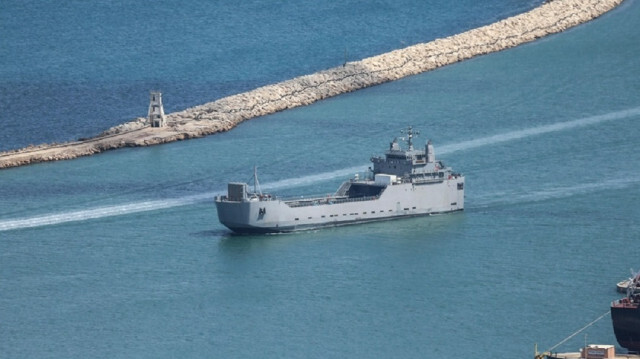
‘There is a clear risk that such cargo would contribute to the commission of war crimes against Palestinian civilians, says rights group
Amnesty International on Tuesday called on Slovenia and Montenegro to not allow the docking of a Portuguese-flagged vessel, which allegedly carries explosives destined for Israel.
According to statements from Namibia's government and Portugal's Foreign Minister, the ship is transporting eight containers of RDX Hexogen explosives destined for Israel.
In August, Namibian authorities denied the vessel entry into the country's main harbor, citing security concerns and the nature of the cargo.
The ship is now reportedly en route to the Montenegrin coast and Slovenia's port of Koper, where it is expected to offload the explosives.
It remains unclear how the cargo would be transferred to Israel from there, but Amnesty International has raised alarm over the implications of such a transfer.
"The deadly cargo believed to be on board the MV Kathrin must not reach Israel, as there is a clear risk that such cargo would contribute to the commission of war crimes against Palestinian civilians," said Natasa Posel, the head of Amnesty International Slovenia.
Under international humanitarian law, all states are prohibited from transferring weapons to parties in armed conflict where there is a clear risk of these weapons being used to commit war crimes or other serious violations.
Amnesty International stressed that allowing the transit of explosives to Israel would be a breach of these obligations.
Posel emphasized that "any state that knowingly transfers arms to the parties in this ongoing conflict, including via transit of ships carrying arms and explosives, risks breaching their obligation not to encourage, aid, or assist in violations of the Geneva Conventions."
Amnesty praised Namibia for adhering to its international obligations by refusing to allow the MV Kathrin to dock.
"Namibia rightfully upheld its international obligations by ensuring that the MV Kathrin did not transit military cargo to Israel through its port," Posel said.
"Now it is up to Slovenia, Montenegro, and all other states to do the same and avoid facilitating an unlawful transfer," she said.

